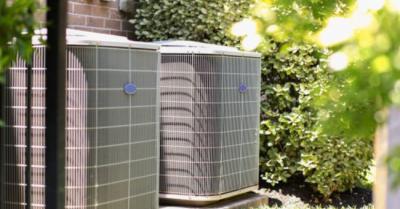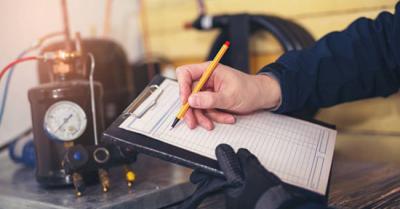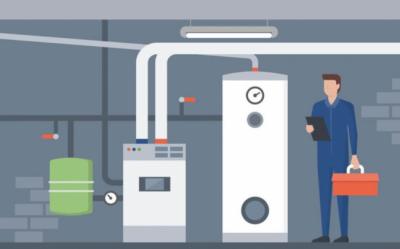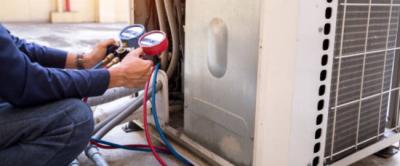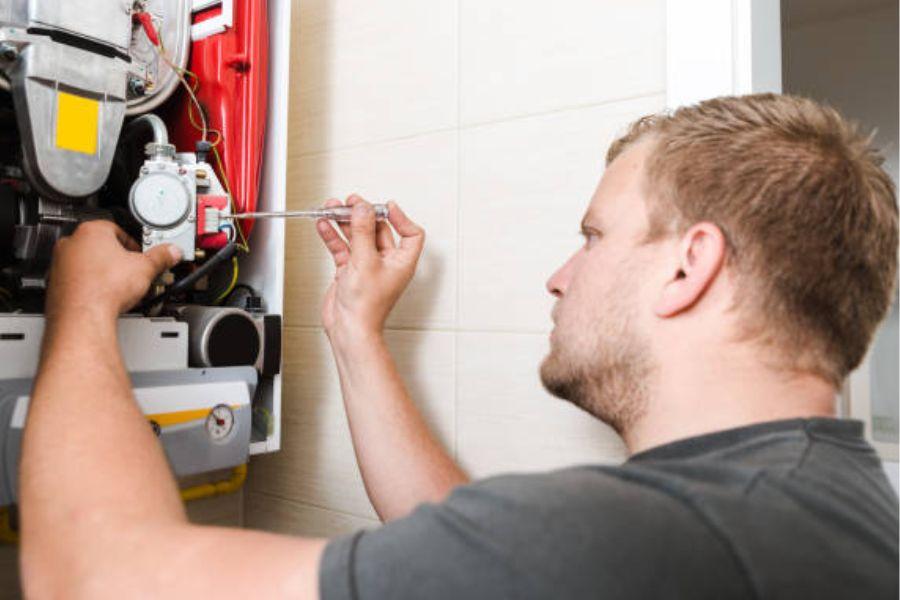
How Often Does My HVAC System Need Freon? | Blairsville, GA
An air conditioning system relies on refrigerant, commonly referred to as Freon, to cool your home efficiently. If your HVAC unit in Blairsville, GA, isn’t cooling properly, you might wonder whether it needs more Freon. While low refrigerant can cause cooling issues, it’s not something that should need regular refilling. Understanding how Freon works, recognizing the signs of low refrigerant, and knowing when to call a professional can help you maintain an efficient cooling system year-round.
HVAC systems are designed to operate as a closed-loop system, meaning Freon should never need to be replaced unless there’s a leak. If your system is consistently low on refrigerant, there’s an underlying issue that needs to be addressed. A properly functioning AC unit does not consume Freon the way a car burns fuel. Instead, it cycles the refrigerant through the system, absorbing and releasing heat to cool your home. If you find yourself needing frequent refills, there’s likely a problem that requires professional HVAC service.
Common Signs of Low Freon in Your AC
One of the most noticeable signs of low refrigerant is a decline in cooling performance. If your air conditioner struggles to maintain a comfortable temperature, it could be due to a lack of Freon. Rooms may feel warmer than usual, and your AC might run continuously without adequately cooling your home. Another clear indicator is warm air coming from the vents. If you notice that the air isn’t as cool as it should be, it’s worth having your system inspected.
Ice buildup on the refrigerant lines or evaporator coil is another warning sign. When there isn’t enough refrigerant, the coil can’t absorb heat properly, leading to freezing. This can cause additional strain on the system and eventually lead to major repairs. You may also hear a hissing or bubbling sound coming from the unit, which could indicate a refrigerant leak. Since Freon is a gas in its natural state, a leak can create these distinct noises as it escapes from the system.
Causes of Refrigerant Leaks
If your system requires frequent Freon refills, it’s important to identify the cause. Leaks can develop due to corrosion in the refrigerant lines, wear and tear over time, or poor installation. Corrosion is a common problem in older units, as formic acid can develop on the copper tubing, leading to small pinhole leaks. In some cases, connections and valves may loosen over time, allowing refrigerant to escape. Improper installation can also result in leaks, which is why it’s essential to work with a trusted HVAC professional.
Leaks not only reduce efficiency but can also damage other components of your AC system. When refrigerant levels drop too low, the compressor has to work harder, increasing energy consumption and shortening the lifespan of your unit. If left unaddressed, this can lead to costly repairs or even the need for a full system replacement.
What to Do If You Suspect Low Freon
If you think your air conditioner is low on refrigerant, the best course of action is to schedule an inspection with an HVAC professional. A technician can check for leaks, test the refrigerant levels, and perform any necessary repairs. Simply adding more Freon without addressing the underlying issue is not a long-term solution. In Blairsville, GA, professional AC repair services are available to help diagnose and fix refrigerant issues, ensuring your system operates efficiently.
A refrigerant leak is not only harmful to your HVAC system but also to the environment. Older AC units may still use R-22 Freon, which has been phased out due to its impact on the ozone layer. If your system relies on this type of refrigerant, you may want to consider upgrading to a newer, more energy-efficient model. Modern air conditioners use environmentally friendly refrigerants that provide better cooling performance while reducing environmental harm.
Keeping Your HVAC System Running Efficiently
Regular maintenance is key to preventing refrigerant issues and keeping your system running smoothly. Annual HVAC inspections can catch small problems before they become major repairs. During a tune-up, a technician will check for leaks, clean the coils, and ensure all components are functioning properly. This proactive approach can help extend the life of your air conditioning unit and keep energy costs under control.
A well-maintained AC system not only provides better cooling but also improves indoor air quality. Dirty coils and clogged filters can restrict airflow, making it harder for your unit to maintain a consistent temperature. Replacing air filters regularly and scheduling professional maintenance can make a significant difference in overall performance.
If you’re in Blairsville, GA, and suspect your air conditioner needs refrigerant, don’t wait for the problem to get worse. Low Freon can cause your system to overwork, leading to higher energy bills and potential breakdowns. A professional HVAC technician can assess the situation, repair any leaks, and recharge your system if necessary. By addressing refrigerant issues promptly, you can ensure your home stays cool and comfortable throughout the warmer months.
Jeff did a wonderful job replacing our old ac unit. He was courteous and professional. I had to contact him a couple of times before the install and he always got back to me right away. Great customer service and I highly recommend.
- Toni Hobgood
